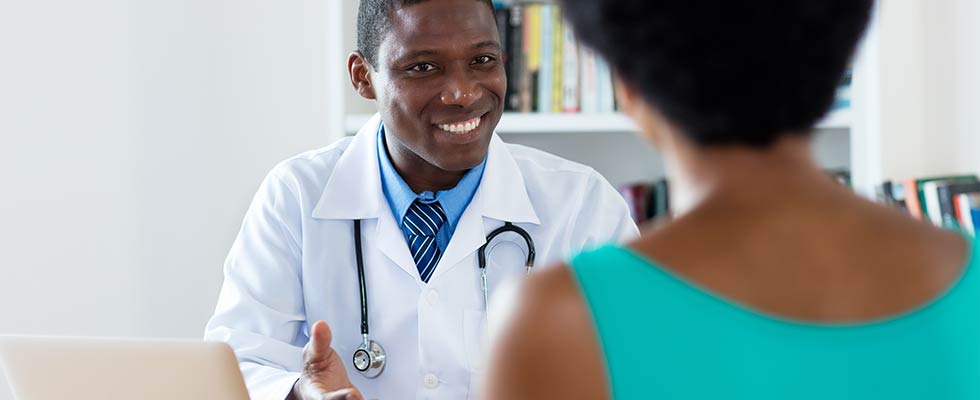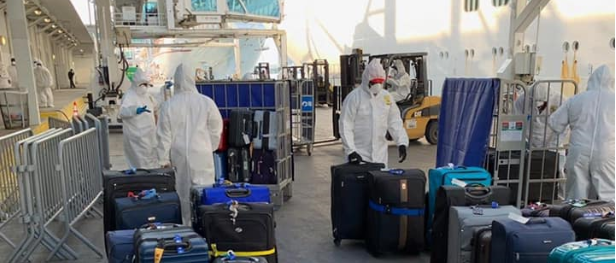
MILA (Cigna) Coronavirus Care and Coverage
What are the symptoms of Coronavirus?
Reported illnesses have ranged from mild symptoms to severe illness and death for confirmed coronavirus disease 2019 (COVID-19) cases.
These symptoms may appear 2-14 days after exposure (based on the incubation period of MERS-CoV viruses).
- Fever
- Cough
- Shortness of breath
Click here to watch a video for more information.
When should I seek medical attention?
If you develop emergency warning signs for COVID-19 get medical attention immediately. Emergency warning signs include*:
- Trouble breathing
- Persistent pain or pressure in the chest
- New confusion or inability to arouse
- Bluish lips or face
*This list is not all inclusive. Please consult your medical provider for any other symptoms that are severe or concerning.
Click here for more information from the CDC.
How can I protect myself, co-workers and family?
The Center for Disease Control (CDC) has some tools and information on how you can best protect yourself, co-workers, and your family here.
Am I covered if my family or I get the Coronavirus?
Am I covered if my family or I get the Coronavirus?
Yes. Your plan will cover diagnosis, testing, and treatment associated with the Coronavirus including:
- Coronavirus diagnostic visits: Cigna is waiving out-of-pocket costs for Coronavirus visits with in-network providers, whether at a provider’s office, urgent care center, emergency room, or via virtual care, through May 31, 2020.
- Coronavirus testing: Cigna is waiving out-of-pocket costs for Coronavirus FDA-approved testing. Only a health care provider or hospital can administer the test and send the sample to an approved lab for results.
- Coronavirus treatment: Your plan will cover treatment associated with COVID-19 or similar diseases. Out-of-pocket costs may apply.
If you are asked to pay upfront for either testing or diagnosis, you will be reimbursed once claims are processed.
Please note: Our call and chat response times are longer than usual because of increased volume. For frequently asked questions related to the coronavirus, visit our COVID-19 Resource Center.
Privacy Notice: Cigna has partnered with Buoy Health Inc. (Buoy) to provide these services. Buoy operates the platform and uses information in accordance with its contract with Cigna.
Will Cigna cover Coronavirus virtual care visits?
Yes. If your visit is related to screening, diagnosis, or testing for the Coronavirus, your out-of-pocket costs will be waived.
To schedule a virtual care appointment, log in to myCigna.com® or the myCigna mobile app.ervices. Buoy operates the platform and uses information in accordance with its contract with Cigna.
Can I also receive virtual medical care not related to the Coronavirus?
Cigna customers can also receive virtual medical care not related to the Coronavirus by physicians and certain providers with virtual care capabilities through May 31, 2020. Out-of-pocket costs may apply.
What should I do if I’m experiencing symptoms or think I’ve been exposed to the Coronavirus?
Contact a PCP: If you’re experiencing mild to moderate symptoms of the Coronavirus, such as fever, dry cough, shortness of breath, contact your Primary Care Provider (PCP). They will advise you on how best to get care, if necessary.
If you are a Cigna customer, you can self-assess your risk for the Coronavirus, check any symptoms you may have, and get directed to care if necessary. Log in to myCigna to get started.
Where can I get tested?
Your PCP can help you understand whether you need testing and the best options for you.
Where you can get tested depends on where you live. Your doctor is the best source because they can work with the local health department and health systems.
You can also visit the CDC to find out what to do if you’re feeling sick
Should I get early refills?
It’s not necessary to order refills ahead of time or to stock up. We will ensure safe delivery of your medications when you need them.
What number should I call for Home Delivery Pharmacy?
Use the following contact information to reach the home delivery pharmacy you are currently using, as part of your pharmacy benefits:
- Cigna Home Delivery Pharmacy and Express Scripts PharmacySM: 1 (800) 853-3784
- Medicare Customers with Express Scripts PharmacySM: 1 (877) 860-0982
- Accredo (for customers receiving specialty medications): 1 (877) 826-7657
Pharmacists are available 24/7 to answer questions about the safety of your medications, offer counseling and support, and assist with prescription orders.
My dentist is closed, and I have an emergency. Where can I get dental care?
Due to the Coronavirus, many of our network dental offices have limited appointments to for emergency needs.
A dental emergency generally includes the following symptoms: severe pain, acute infection, swelling, and or persistent bleeding.
Cigna dental customers can find care by calling 1 (800) 997-1654 or by visiting myCigna.com.
Where can I get vision care?
Due to the Coronavirus, many of our network vision providers have limited appointments for urgent needs.
Urgent vision care situations may include having a contact lens lost or torn and still in the eye, a sudden onset of vision changes (double vision, blurry vision, wavy vision), or black spots/flashing lights in your vision.
If you’re unsure whether your situation is urgent or an emergency, we recommend calling your PCP for guidance.
Cigna vision customers can find care by calling 1 (800) 997-1654 or by visiting myCigna.com.

Locals and Members
What preventative actions should I take?
RThe ILA is following the recommended steps and procedures as outlined by the CDC. The best way to prevent illness is to avoid being exposed to this virus. However, as a reminder, CDC always recommends everyday preventive actions to help prevent the spread of respiratory diseases including:
If soap and water are not readily available, use an alcohol-based hand sanitizer with at least 60% alcohol. Always wash hands with soap and water if hands are visibly dirty.
Avoid close contact with people who are sick.
Avoid touching your eyes, nose, and mouth.
Stay home when you are sick.
Cover your cough or sneeze with a tissue, then throw the tissue in the trash.
Clean and disinfect frequently touched objects and surfaces using a regular household cleaning spray or wipe.
Follow CDC’s recommendations for using a facemask.
CDC does not recommend that people who are well wearing a facemask to protect themselves from respiratory diseases, including COVID-19.
Facemasks should be used by people who show symptoms of COVID-19 to help prevent the spread of the disease to others. The use of facemasks is also crucial for health workers and people who are taking care of someone in close settings (at home or in a health care facility).
Wash your hands often with soap and water for at least 20 seconds, especially after going to the bathroom, before eating, and after blowing your nose, coughing, or sneezing.
What Best Practices has the ILA put in place to protect me?
In addition to the CDC recommendations, we also recommend:
Your actions at home are just as important in keeping all of us safe and healthy
Hire/Dispatch over phone or outside as much as possible
Reduce number of people coming into hiring hall
Have sanitation wipes to wipe computers, other public areas, and hand sanitizer available – disinfect public areas regularly throughout the day
Practice social distancing (6ft. apart is recommended)
If you have portable toilets on site, ask port or employer if they can provide hand wash basins
Ask truck drivers to stay in trucks as much as possible to avoid unnecessary contact
If available, take people’s temperature when going in and out of hiring halls
If available, it’s recommended to have a nurse on sight
Ask everyone to continue to practice social distancing on breaks – don’t go out to lunch or take breaks in groups
All members should be practicing social distancing at home too
Stay home when not working
Only go out for necessities (groceries, medication, etc.)
Do not go to crawfish boils, BBQs, or anywhere there are people other than your immediate family there (immediate family means family that live with you in your home)

Joint Safety Committee
What is the process we must follow if a worker/employee received a positive test?
Once an employer has direct knowledge that an employee has tested positive for the Coronavirus, the following guidance is offered:
1) Contact the relevant local health agency and disinfect the work area(s) normally occupied by the infected employee;
2) Inform potentially exposed employees (those typically in contact with the infected worker) without mentioning the infected worker’s name;
3) Within the parameters offered by the relevant collective bargaining agreement and by applicable (and evolving) Federal & State laws and regulations, promptly sort out and implement the proper means and methods available for granting leave (paid, subsidized or otherwise) from work;
4) Maintain absolute confidentiality. Several Federal laws impose strict confidentiality requirements in re a CoVid-19 employees’ symptoms, test results, treatments, etc.; and
5) Carefully manage return to work certifications. Once an employee has recovered from a Coronavirus infection and is well, it is important to verify his/her recovery so as not to potentially endanger other, uninfected employees on a return to work. To that extent, a note/certification from a licensed health care profession would serve that purpose.
Given the workload being imposed upon those health care providers during the current Coronavirus crisis, however, acquiring timely return to work notes/certifications may be problematic. Both CDC and OSHA have encouraged “Alternative” certifications, where possible. We’re confident that our industry can be inventive enough to arrive at a suitable and fully protective “Alternative” certification. [21 March 2020]*
* For original post from ILA-USMX Joint Safety Committee: https://ilaunion.org/wp-content/uploads/After-a-Positive-Test-Result-0321202.pdf
If a worker or manager, acting in good faith, reports for work and is subsequently found to be sick… should that worker or manager be required to absent himself/herself from the workplace in order to be isolated, tested and (if necessary) treated?
Given the current pandemic status of the Novel Coronavirus, the JSC’s guidance in such a matter must be provided in a manner that preserves the health and safety of as many ILA members and management representatives as possible. In order to flatten the infection curve being experienced nationally, the JSC must recommend that sick workers and managers should be required to absent themselves (voluntarily or through direct order) so that other workers and managers who are not ill may be spared the risks of being infected with the Novel Coronavirus. We make that recommendation with the full understanding that a certain degree of potentially negative financial impact may be present for individuals who are required to absent themselves, but also that Federal legislation currently includes provisions that will substantially soften that impact.
Moreover, in speaking with industry employers we’re made to understand that there is a prevailing sentiment that no worker or manager should be unduly impacted when engaged in an effort designed to protect our industry and the health and safety of the people who make it work. The JSC provides the foregoing guidance after very careful consideration, and with the overriding goal of preserving the health and safety of as many ILA members and management representatives as possible in these very challenging times. [19 March 2020]*
*For original post from ILA-USMX Joint Safety Committee: https://ilaunion.org/wp-content/uploads/Sick-Workers-Managers-Absenting-Themselves-031620.pdf

Federal Programs and Laws
What is Critical Worker Status? What does that mean?
In accordance with President Trump’s recent critical infrastructure mandate, and in collaboration with other federal agencies and the private sector, the U.S. Department of Homeland Security, Cybersecurity and Infrastructure Security Agency (CISA) developed an initial list of “Essential Critical Infrastructure Workers.” Employees of the Transportation & Logistics sector are currently deemed to be “Critical infrastructure Workers”
You can view additional information about the Guidance Here: https://www.iladistrict.com/guidance-on-the-essential-critical-infrastructure-workforce/
What is the federal CARES Act and how can it help me?
On March 27, 2020, President Trump signed into law the Coronavirus Aid, Relief, and Economic Security Act (“CARES Act”), a $2.2 trillion stimulus package intended to spread relief across the American economy during the COVID-19 public health emergency. Title II of the CARES Act provides monetary relief for workers affected by COVID-19 by both increasing unemployment benefits and expanding eligibility.
In an effort to fill the gap between the average paycheck and state unemployment benefits, the CARES Act will provide eligible employees an extra $600 per week in unemployment benefits in addition to what they are eligible for under existing state programs. This boosted payment will last for approximately four months until its current expiration date of July 31, 2020.
The CARES Act also provides for an additional 13 weeks of continued $600 weekly payments for individuals who remain unemployed after exhausting their state unemployment benefits. This means eligible workers will be able to receive unemployment benefits for up to 39 weeks rather than the 26-week cap under most state programs.
Workers should be aware of the possible implications of receiving the additional $600 benefit. For example, the expanded benefit will count as income when determining eligibility for certain means-tested programs, including Supplemental Nutrition Assistance Program but not for Medicaid or the Children’s Health Insurance Program.
For more information: https://taxfoundation.org/federal-coronavirus-relief-bill-cares-act/
For a printable summary: https://mcusercontent.com/bd36761add764c14a05905c4b/files/dbd75363-e8a8-426c-b62e-6f131a20e15d/Summary_of_the_CARES_Act.pdf
Do HIPAA Laws Apply During the COVID-19 Pandemic?
YES. With some very minimal exceptions. Below are the exceptions, but we highly recommend you maintain confidentiality unless given explicit permission by the patient/member and/or legal or health authorities.
In light of the ongoing COVID-19 pandemic and the need for an informed and coordinated public health response, U.S. Secretary of Health and Human Services (HHS) Alex Azar declared a limited waiver of the following provisions of the HIPAA Privacy Rule:
Public Health Activities
Public health authorities and others responsible for ensuring public health and safety may access protected health information that is necessary to carry out their public health mission, and as such, individual authorization by patients is not required in a number of circumstances:
- Covered entities may disclose patient’s health information to public health authorities such as the CDC or a state or local health department authorized by law to collect or receive such information.
- If a public health authority such as the CDC or a state or local health department directs the covered entity to do so, a covered entity may disclose protected health information to a foreign government agency that is collaborating with the domestic public health authority to address a matter of public health.
- If authorized by state law or a public health authority, a covered entity may disclose protected health information of a patient to persons at risk of contracting or carrying a communicable disease as necessary to prevent the further spread of the disease.
- If authorized by state law or a public health authority, a covered entity may disclose protected health information as necessary to other parties engaged in undertaking public health interventions or investigations.
Disclosures to the Media and Others
Covered entities, according to the rules, should not disclose specific information about the treatment (including, but not limited to, a patient’s test results and specific details of an individual’s condition or illness) of an identifiable patient to the media or other individuals not involved in the patient’s care without the written, HIPAA-compliant authorization of the patient or the patient’s representative, except in such specific circumstances:
- If a patient has not objected to or otherwise restricted the release of their own protected health information and the media or another individual or individuals request information about that particular patient by name, a covered entity may at their discretion acknowledge that the patient is receiving care in the facility, release limited facility directory information, and may provide information about the patient’s condition in broad and general terms such as “critical,” “stable,” “deceased,” or “treated and released.”
- If a patient is incapacitated, covered entities may also disclose information to the media and to other individuals not involved in the patient’s care only if the disclosure is believed to be in the best interest of the patient and is consistent with any prior expressed preferences of the patient.
“Minimum Necessary Rule”
Excluding disclosures to healthcare providers for the purposes of treatment of the patient or others, all disclosures of protected health information that are not authorized by the patient are subject to HIPAA’s “minimum necessary” rule – which applies equally to disclosures made under the public health emergency waiver.
Under the “minimum necessary” rule, a covered entity must make reasonable efforts to limit the information disclosed to that which is the “minimum necessary” to accomplish the purpose of the disclosure.
Internally, covered entities should apply role-based policies limiting the access to patient’s protected health information only to members of the workforce who need the information to perform their duties or whose health and safety may be jeopardized by failure to disclose such information.
When a patient’s protected health information is requested by a public health authority, covered entities may rely on representations from that authority or another relevant public official that the requested information is the minimum necessary to fulfill the purpose of the request.
Finally, in the COVID-19 & HIPAA Bulletin, the Secretary specifies that a covered entity may rely on representations from the CDC that the protected health information requested by the CDC about all patients exposed to or suspected or confirmed to have COVID-19 is the minimum necessary for the public health purpose.
Source URL: https://www.natlawreview.com/article/relaxing-hipaa-laws-duringcovid-19-pandemic


